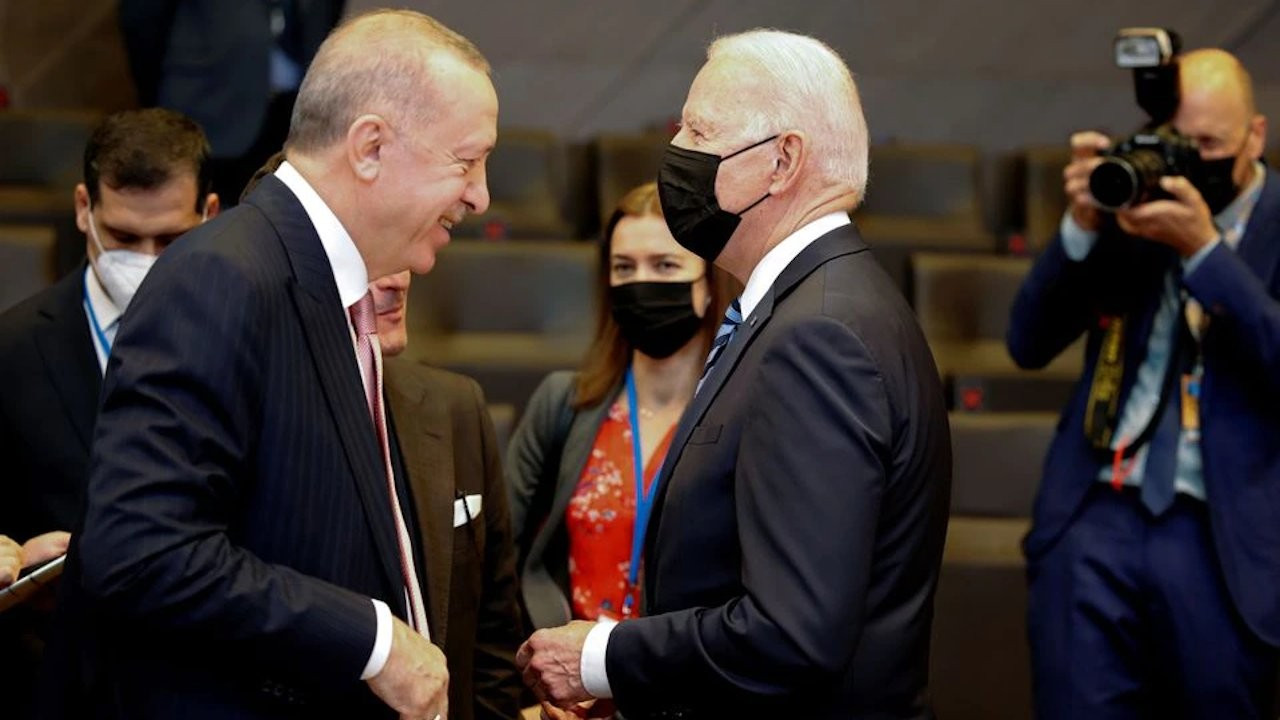Erdoğan, Biden discuss Russia's invasion of Ukraine in phone call
Turkish President Recep Tayyip Erdoğan and U.S. President Joe Biden discussed their concerns about Russia’s invasion of Ukraine and reaffirmed their support for Ukraine in a phone call on March 10, according to statements by Erdoğan's office and the White House.
Anadolu Agency - Duvar English
Turkish President Recep Tayyip Erdoğan and his US counterpart Joe Biden held a phone conversation on March 10, discussing several issues, including Russia's war on Ukraine.
During the phone talk, the two leaders discussed bilateral ties as well as the Russia-Ukraine crisis, according to a statement by Turkey's Communications Directorate.
It is important that Turkey is in a facilitator position in search for a solution, in case the Russia-Ukraine crisis deepens further, Erdoğan reportedly told Biden.
The foreign ministers of Turkey, Ukraine, and Russia met early on March 10 with the aim of reaching a lasting peace as the Russia-Ukraine war has entered its third week.
The high-level tripartite meeting began at 11.20 a.m. local time (0820GMT) on the sidelines of the Antalya Diplomacy Forum in southern Turkey and lasted for more than an hour.
Turkey's demand for new aircraft, F-16 jets modernization
Erdoğan said he expects that Ankara's demand, which includes the purchase of 40 new aircraft from the US and modernization of Turkey's F-16 jets, will be finalized as soon as possible.
Erdoğan said that it was past time to lift all "unjust" sanctions on Turkey's defence industry.
Turkey's purchase of the S-400s has also triggered U.S. sanctions. In December 2020, Washington blacklisted Turkey's Defence Industry Directorate, its chief, İsmail Demir, and three other employees.
White House also issued a statement regarding the phone talk, during which both leaders shared their concerns about Russia's war on Ukraine.
"They reaffirmed their strong support for the government and people of Ukraine, underscored the need for an immediate cessation of Russian aggression, and welcomed the coordinated international response to the crisis," said the statement.
The two leaders also discussed opportunities to strengthen the bilateral ties between the two nations.
The White House did not mention a discussion about sanctions or Turkey's request regarding the F-16s.
The decades-old partnership between the NATO allies has gone through unprecedented tumult in recent years over disagreements on Syria policy, Ankara's closer ties with Moscow, U.S. charges against a state-owned Turkish bank and erosion of rights and freedoms in Turkey.
Washington has repeatedly warned Turkey against buying further Russian weaponry. Ankara has said it intends to go through with the purchase of a second batch of S-400s from Russia, a move that could worsen the diplomatic rift with the United States.
The request for the jets will likely have a difficult time getting approval from the U.S. Congress, where sentiment towards Turkey has soured deeply over recent years.
Democratic and Republican U.S. lawmakers urged the Biden administration in October not to sell F-16 fighter jets to Turkey and said they were confident Congress would block any such exports.

 Erdoğan, Biden to discuss Russia-Ukraine developments in a phone callDiplomacy
Erdoğan, Biden to discuss Russia-Ukraine developments in a phone callDiplomacy